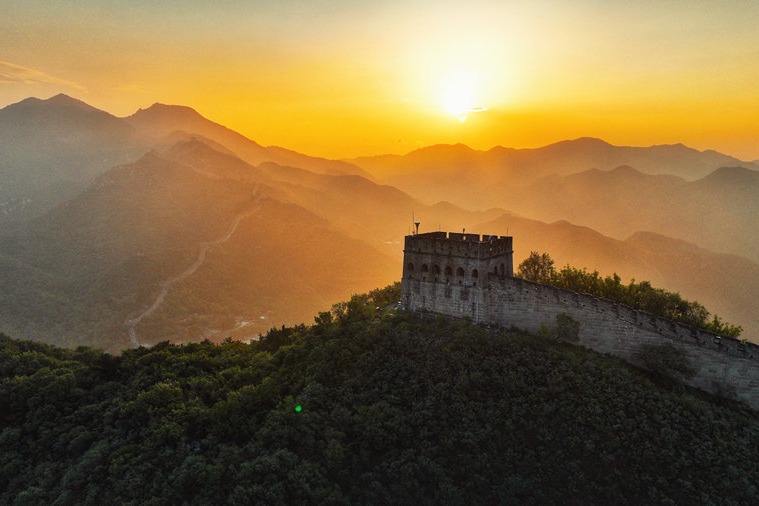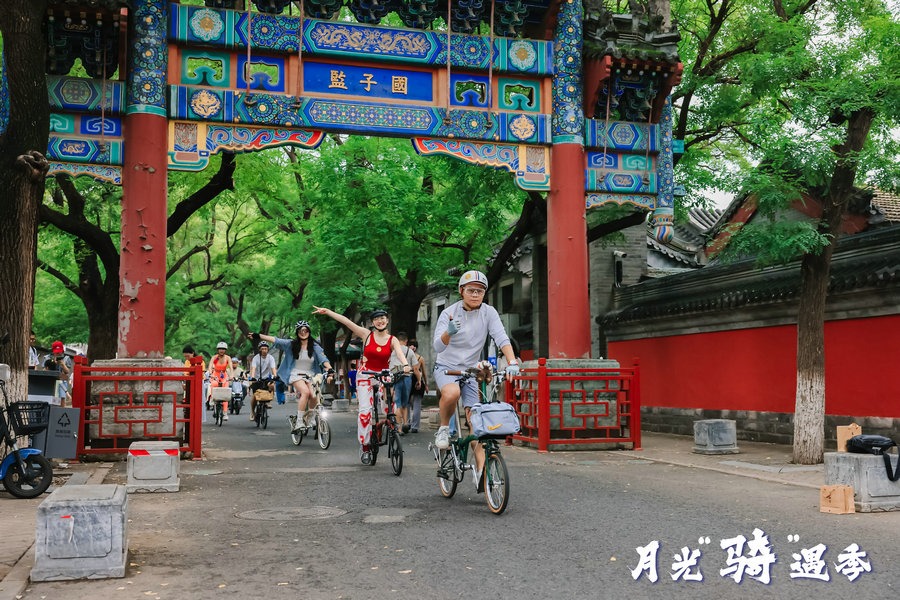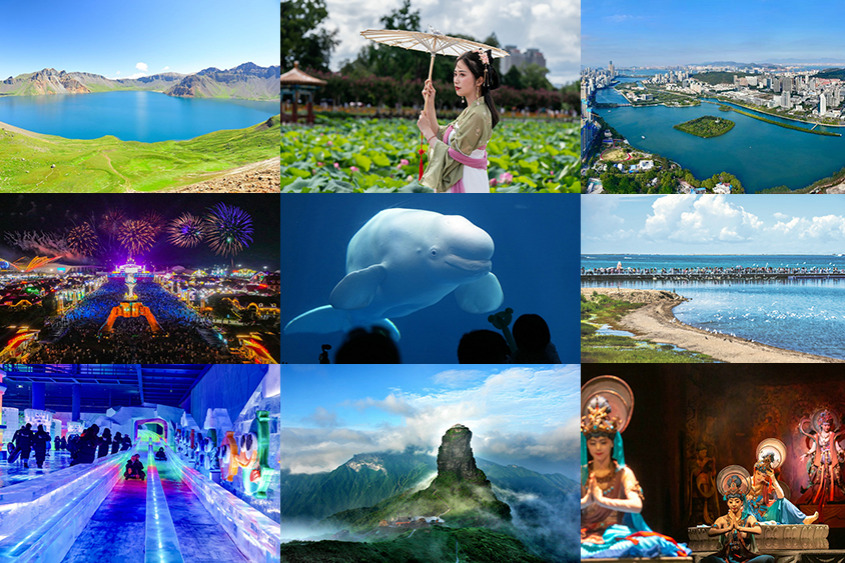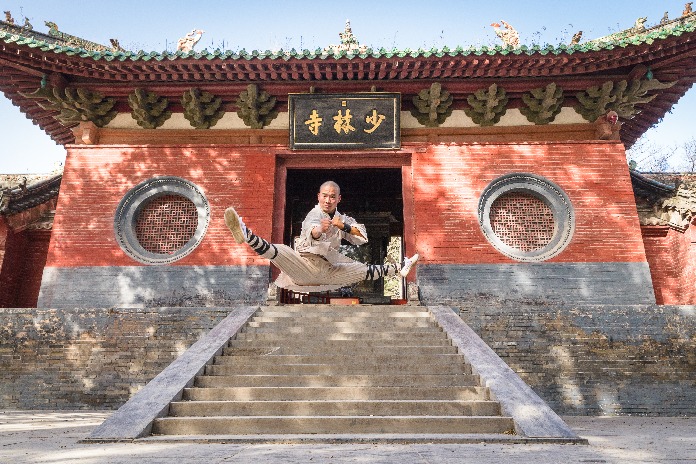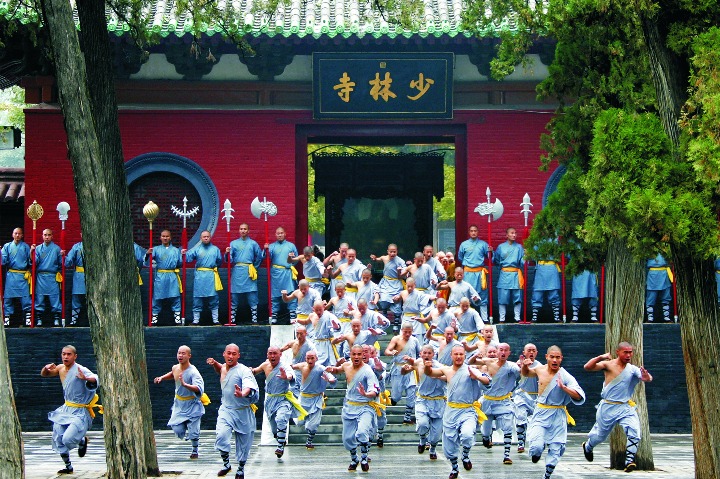Discovering a new view of an ancient town

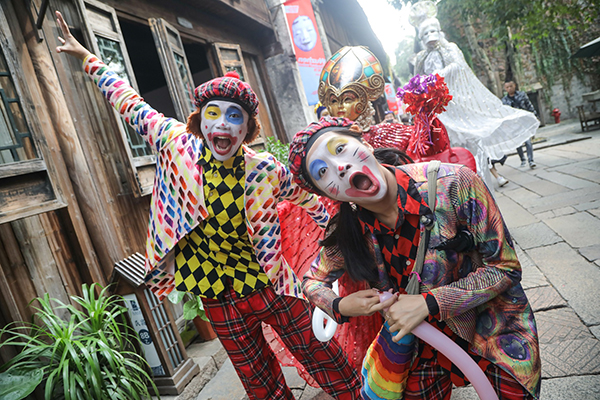
Many of the old towns I've visited in the Yangtze River's lower reaches have proved to be largely the same-black-awning-covered boats float beneath arched bridges spanning canals lined by stone houses with black-ceramic-shingled roofs and wooden windows.
Shops in narrow lanes sell local snacks, handicrafts and souvenirs.
To some extent, if you've seen one such settlement, you've seen them all.
Or, so I thought.
I honestly didn't expect much from the Xizha scenic area in Wuzhen, a 1,300-year-old water town in Zhejiang province's Jiaxing city. The settlement attracted over 10 million visitors last year. But I still didn't expect to be impressed.
I discovered long lines outside of several businesses, especially in front of a shop selling congbaohui, a local dim sum with a storied history.
It's said the snack-a thin sheet of dough wrapped around a scallion inside a thicker layer of twisted dough that's deep-fried with sauces-was created as an effigy.
Hero Yue Fei, who defended the Southern Song Dynasty (1127-1279) against invaders from northern China, was framed by chancellor Qin Hui and killed in prison in Hangzhou in 1142.
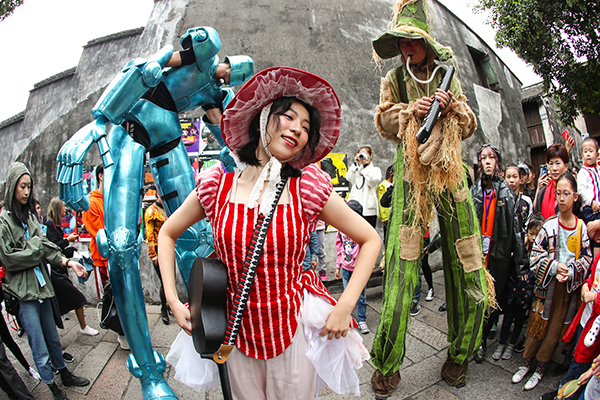
A local cook shaped dough into figures meant to symbolize Qin and his wife, and tossed the dough in sizzling oil to show his contempt.
He named the snack "fried Hui", and it became popular nationwide.
But its name was changed to congbaohui, to circumvent the powerful chancellor's ire.
Further down the lane, colorful theater posters covered a brick wall.
Stilt-walkers wearing clown-like makeup brushed up against me.
Vertical banners on both sides of the street were printed with profiles of celebrated playwrights from around the world-Greek tragedian Sophocies (496-406 BC), British poet George Gordon Byron (1788-1824), Yuan Dynasty (1271-1368) dramatist Ji Junxiang, Norwegian playwright Henrik Johan Ibsen (1828-1906), Irish poet and playwright Oscar Wilde (1854-1900) and Chinese playwright Cao Yu (1910-96).
The banners served as a reminder of the Wuzhen Theater Festival, which concluded last month, shortly after my visit.
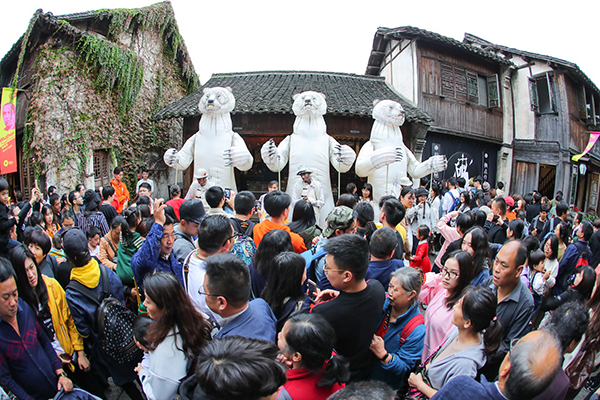
Bystanders applauded and laughed as they snapped photos of performers from home and abroad staging avant-garde plays, Peking Opera, crosstalk and kuaiban-a traditional Chinese rap-like art form-near bridges, in pavilions, on platforms and under archways.
I stopped when I came across a group of Chinese children reciting English lines in front of a gated old house. They were performing a half-hour play adapted from Shanhaijing, a classic collection of texts on myths in ancient China, telling stories of mythical characters like the goddess Nyuwa and emperor Fuxi from the perspective of a young time traveler.
The students were from Beijing Chongwen Primary School's theater club, says Li Haibin, from Well-Et, a performing arts company that organized the students to perform in Wuzhen. They'd traveled to Wuzhen because they believed the festival would provide an opportunity to tell Chinese stories to foreigners.
"I plan to help them participate in overseas theater festivals next year, and Wuzhen is a window for us to get a rough idea of what these kind of events are like," he says.
I wandered around the scenic area, feeling the fall breeze, watching crowds head to teahouses and listening to pop songs coming from the bars.
And I realized that Wuzhen's particular mix of the ancient and the modern, and of simplicity and dynamism truly exceeded my expectations.
I was, indeed, impressed.

















